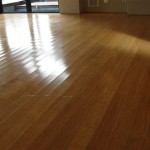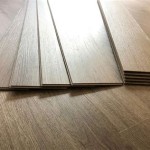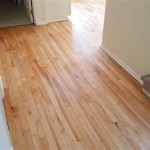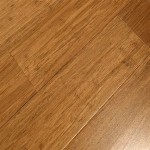Engineered Wood Flooring Vs Hardwood: A Cost Comparison
When choosing new flooring for a home, the decision often comes down to hardwood or engineered wood. Both offer beautiful aesthetics and durability, but they differ in how they are constructed, their cost, and their performance. Understanding these differences is crucial for homeowners looking for the best value for their investment.
Construction and Composition
Hardwood flooring is made from solid pieces of wood, typically 3/4" thick. The entire board is made from the same species of wood, providing a consistent look and feel. Engineered wood flooring, on the other hand, is constructed in layers. A thin veneer of hardwood is glued to a plywood base, which is then covered with a wear layer. This construction method allows for greater stability and resistance to warping and moisture changes, making engineered wood suitable for areas with high humidity or temperature fluctuations.
Cost Comparison
The cost of hardwood flooring is generally higher than engineered wood. This is primarily because solid hardwood is a more expensive material. The price of hardwood flooring can vary greatly depending on the species of wood, the quality of the wood, and the finish. While some hardwood options may be affordable, exotic woods like mahogany and walnut can be very expensive. Engineered wood, on the other hand, is typically more cost-effective, especially in areas where hardwoods are not readily available. However, the price of engineered wood can also vary based on the quality of the veneer, the thickness of the wear layer, and the overall construction.
Durability and Longevity
Hardwood flooring is known for its durability and longevity. With proper care and maintenance, hardwood floors can last for decades. They can be refinished multiple times, allowing for rejuvenation and continued use. Engineered wood, while less durable than solid hardwood, is still considered a long-lasting flooring option. The wear layer provides a protective barrier against scratches and dents, making it suitable for high-traffic areas. Engineered wood is not as easily refinished as hardwood, but it can be sanded and refinished a few times, depending on the thickness of the wear layer.
Water Resistance
Hardwood flooring is generally susceptible to moisture damage. Water spills or leaks can cause warping, swelling, and even rotting. While some hardwood species are more resistant to moisture than others, it is generally advisable to avoid using hardwood in areas with high humidity or frequent water exposure. Engineered wood, however, is more resistant to moisture damage than solid hardwood. The plywood core makes engineered wood more stable and less prone to warping. This makes engineered wood a suitable option for kitchens, bathrooms, and other areas where water spills may occur.
Installation Considerations
Hardwood flooring installation can be complex and requires specialized skills. The installation process typically involves nailing or gluing the boards to the subfloor. Engineered wood flooring installation is often easier and more accessible for DIYers. The boards are typically glued or floated over a subfloor, making the installation process relatively straightforward. However, regardless of the type of flooring, it is always best to consult with a professional installer to ensure proper installation and avoid potential problems.
Sustainability
Both hardwood and engineered wood can be sustainable options for flooring. Choosing sustainably harvested woods and manufacturers who prioritize eco-friendly practices is important. Hardwood flooring can have a higher environmental impact due to the need for more material and the potential for deforestation. Engineered wood, on the other hand, can be more sustainable since it uses less wood and often incorporates recycled materials in the construction process. It is crucial to research the specific manufacturer's sustainability practices before making a decision.
Ultimately, the choice between engineered wood flooring and hardwood comes down to individual preferences, budget, and lifestyle. Both options offer unique characteristics and advantages. Carefully considering the factors discussed above can help homeowners make an informed decision that best suits their needs and preferences.

Solid Vs Engineered Hardwood Which Is Better

Hardwood Vs Engineered Wood Flooring Which Is Better Bessemeter
Solid Versus Engineered Floors Ken Spears Construction

Engineered Wood Vs Solid Hardwood

Engineered Wood Flooring Vs Solid Forté

How To Choose Between Engineered Solid Wood Flooring Adige Design

Solid Vs Engineered Hardwood Which Is Better

How Much Does Wooden Flooring Cost In 2024 Checkatrade

Hardwood Vs Engineered What S The Difference Cosmaroma

Engineered Wood Vs Solid Which Is Better Flooring
See Also






